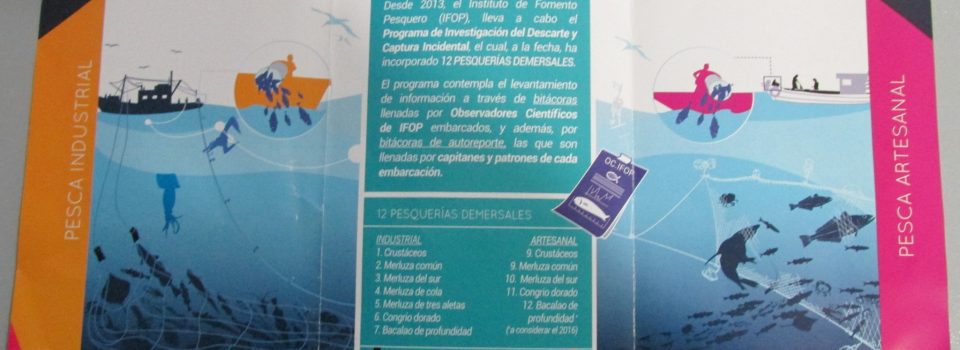Discard research program developed and bycatch information campaign carried out by IFOP users
April 7th, 2016They are delivering 5000 leaflets practical information and teaching users about the Research Program Discard and Incidental Capture Fisheries and the main requirements of Law 20,625 incorporated Discard matter
Discarding fisheries, it is the action of releasing sea species caught. From the year 2013 the Fisheries Development Institute (IFOP) conducts research program Discard and Incidental Catch of fishing, which to date has incorporated 12 demersal fisheries distributed between the Region of Atacama and Magallanes and Chilean Antarctic.
The information campaign is focused on delivering leaflets being distributed by researchers and scientific observers, coves, fishing companies, craft organizations, trade unions, trade associations, and fishing boats, located between Coquimbo and Punta Arenas.
Marcelo San Martin, project leader, explained the importance of the information campaign and the goal of the triptych “to inform users simply and briefly what the research program and the requirements is that the Act incorporates Discard in this area. It is always necessary to keep informed fishermen and users of fisheries on sensitive issues such as discards and bycatch, especially when they are the main actors in solving the problem.
We often find some level of misinformation of what happens in fisheries regulation and in particular with regard to the dismissal and its research program.
The problem of discards and bycatch is a sensitive issue and the research project is to develop high-impact so it is necessary that users know in greater detail the objectives. We conducted a field work, meetings with fishermen, but it is always appropriate material support.
We hope this material will encourage users to participate more actively in the development of the research program, particularly embarking monitoring and working with developing our scientific observers. Only in this way we can assess the extent of the problem and together move towards mitigation “ended professional IFOP

